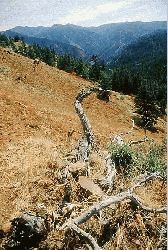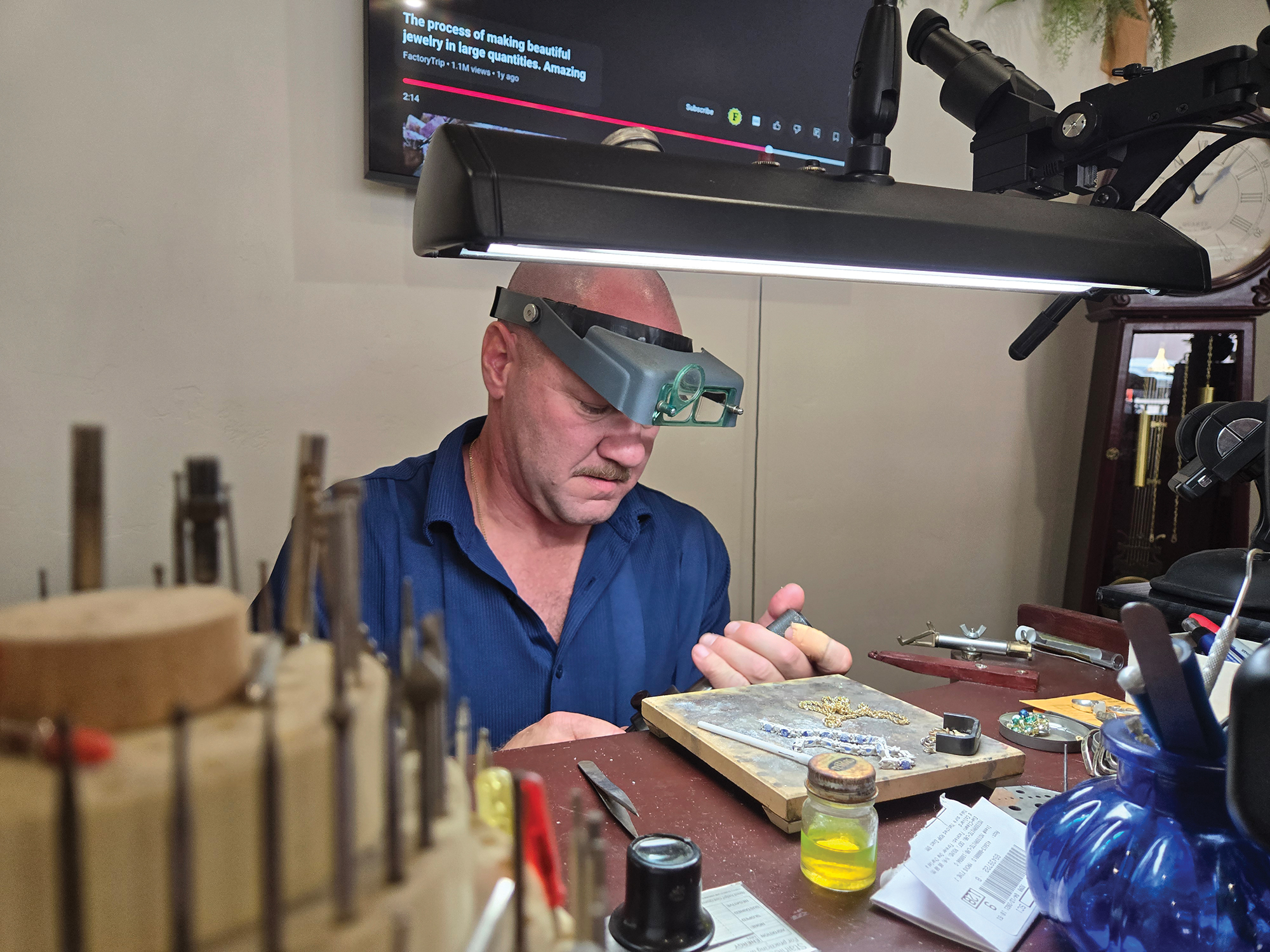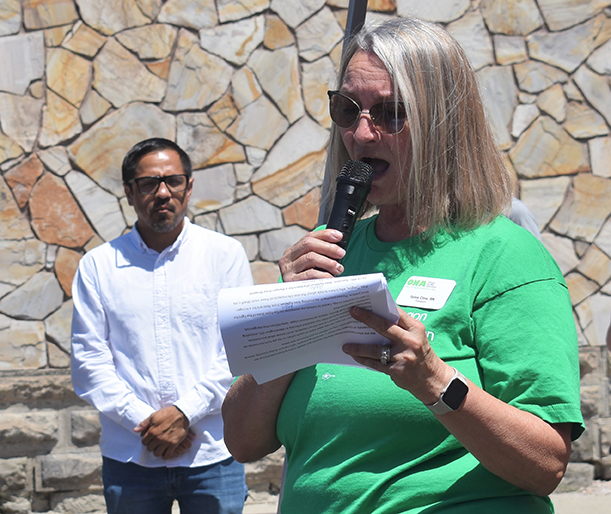Hells Canyon National Park?
Published 12:00 am Thursday, August 28, 2003

- Hells Canyon of the Snake River. (Baker City Herald/S. John Collins).
By JAYSON JACOBY
Of the Baker City Herald
Ric Bailey believes that just maybe the wrong federal agency is managing the biggest piece of public land in Northeastern Oregon.
He thinks he knows the right one.
Bailey is executive director of the Hells Canyon Preservation Council, based in La Grande.
He contends that more than a million and a half acres of public property including the Hells Canyon National Recreation Area (NRA) and the north half of the Wallowa-Whitman National Forest have suffered under the stewardship of the U.S. Forest Service.
The National Park Service might be the better agency for the job, Bailey said.
He immediately emphasizes, though, that the Council does not, as it has in the past, endorse the creation of a National Park with Hells Canyon and the Wallowa Mountains as its centerpieces.
Instead, the organization’s campaign, the andquot;Hells Canyon-Chief Joseph National Preserve Project,andquot; aims to designate the area, as the name implies, as a andquot;preserve,andquot; Bailey said.
Hunting, which is banned in national parks, would be allowed in a preserve, he said.
But two other traditional activities in the area logging and livestock grazing probably would be curtailed, though not eliminated, Bailey said.
The council’s overall goal, he said, is to andquot;not only protect, but to restore an incredible wildland ecosystem that, although relatively intact, is besieged by decades of mismanagement by the U.S. Forest Service.andquot;
The Preservation Council is not rushing ahead, however.
The organization’s leaders intend to try to amass public support for the plan over the next two years, before asking members of Congress to introduce a bill that would transfer management of the area to the National Park Service.
To some, proposal is a surprise
Wallowa County Commissioner Ben Boswell agrees with Bailey that Hells Canyon and its environs are special places the federal government should protect.
But Boswell’s opinion of the Forest Service’s abilities is starkly different from Bailey’s.
andquot;I don’t think we’ve hurt (the area) that bad, and we don’t want to,andquot; Boswell said.
He points out that just a few weeks ago the Forest Service finished writing a management plan for the Hells Canyon NRA.
The Preservation Council, usually among the Forest Service’s most outspoken critics, praised significant parts of the new plan, including the permanent closure of about 300,000 acres of the NRA to livestock grazing.
Considering the Council’s positive comments, Boswell said he’s surprised the Preservation Council, less than a month later, would revive its longstanding call to transfer management from the Forest Service to the National Park Service.
andquot;I’m almost speechless, actually,andquot; Boswell said. andquot;Why would they even consider this again?andquot;
Forest Service officials were surprised, too.
andquot;It was a little puzzling in light of the recent public comments,andquot; said John Denne, public affairs officer for the Wallowa-Whitman National Forest.
Those comments, Denne said, included statements made by Bailey and other Preservation Council officials that to Forest Service employees seemed supportive of the Forest Service’s new Hells Canyon management plan.
Yet now the Council proposes to replace the Forest Service with the National Park Service.
andquot;This seems a little inconsistent to us,andquot; Denne said.
Bailey acknowledged that the Forest Service’s new plan for the NRA contains many apparent improvements.
Apparent, because so far those improvements exist only on paper.
andquot;They’ve got a lot of proving out to do,andquot; Bailey said of the Forest Service. andquot;They’ve got to reverse a 28-year legacy of failure.andquot;
Congress created the NRA 28 years ago.
Bailey pledged to work andquot;hand-in-handandquot; with the Forest Service to ensure the words in the agency’s plan translate into real progress in the canyon’s forests and grasslands.
andquot;Our mission isn’t to replace the Forest Service, but to achieve restoration of the area,andquot; Bailey said.
Yet he contends that swapping agencies might be the only way to meet the Preservation Council’s goals.
Boswell suspects the Preservation Council modified its former National Park proposal in order to garner more supporters for its campaign.
He cited specifically the switch from park to preserve, the change Bailey said would allow hunters to continue pursuing the area’s herds of deer, elk, bighorn sheep and other big game.
The loss of hunting privileges was among the more controversial parts of the Preservation Council’s National Park plan.
andquot;I think it’s an attempt to broaden their political base by trying to include hunters,andquot; Boswell said of the new preserve proposal.
Bailey said the Preservation Council recognizes that some people also opposed the National Park proposal because they envisioned Grand Canyonesque crowds of tourists converging on a region known for its solitude.
He shares that concern.
andquot;Our goal is not to just bring in as many people as possible,andquot; Bailey said. andquot;We’re not promoting unlimited tourism.andquot;
Still, he believes transferring the land to the National Park Service would attract more visitors, whose dollars would bolster local economies.
Boswell is skeptical.
The creation of the Hells Canyon NRA in 1975 did not create the economic boon some people predicted, he said.
Tourism has increased from 6 percent of Wallowa County’s economy to 11 percent, Boswell said.
Meanwhile, he said, lawsuits and appeals filed by the Preservation Council and other environmental groups have bulldozed the region’s timber industry.
Mills closed.
Dozens of jobs were lost.
But Bailey said the Preservation Council’s preserve proposal does not preclude logging.
andquot;There’s nothing wrong with producing commercial timber,andquot; he said.
But Bailey thinks logging is appropriate only when cutting trees helps to heal a forest for example, when the exclusion of fire has allowed trees to overpopulate an area.
Bailey contends the Forest Service’s main purpose is not to protect forests, but to produce as many board-feet of timber as possible.
He thinks the National Park Service is better suited to restoring the region in the manner the Preservation Council prescribes.
andquot;I believe the Park Service would carry that out more objectively than the Forest Service has been,andquot; Bailey said.
Conversely, he lauds the Forest Service for its recent decision to permanently close vacant grazing allotments on about 300,000 acres in the Hells Canyon NRA.
None of those allotments has been used for grazing for several years.
andquot;That’s one of the things we’re most pleased about in the new management plan,andquot; Bailey said.
The Preservation Council would, however, also like to reduce the number of livestock still grazing in the NRA, he said.
andquot;We support the buy-out option,andquot; Bailey said, referring to a plan in which the federal government would pay ranchers to not graze their livestock on public lands.
Bailey emphasized that every part of the Preservation Council’s proposal is just that a proposal.
andquot;This is a flexible plan,andquot; he said.
The overriding goal, he said, is to andquot;permanently protect one of the most spectacular and deserving landscapes in America.andquot;
andquot;The ecosystem is in serious decline, but the problem isn’t laws,andquot; he said. andquot;The problem is simply (the Forest Service) is not taking the steps it needs to take to solve the problem, and in some cases is causing the problem with its policies.andquot;









